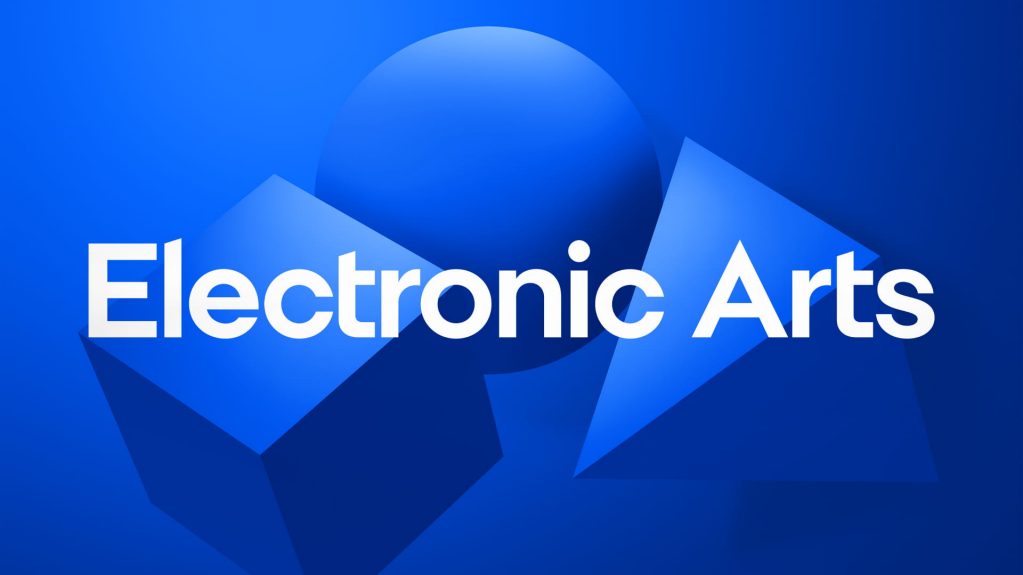Unless you’ve been hiding in a Vault-Tec vault for the past two hundred years, you may have noticed that it’s a rocky landscape for the gaming industry. As of April 29, 2024, over 20,000 people have been laid off in the world of video games since January 2023 across the industry particularly hitting the developers of games that have been, in any other time, lauded successes. The latest one in the proverbial poo barrel, to put it nicely, has been Xbox and parent company Microsoft, and they are knee-deep in the brown. It’s so bad – and this is 100% true – when asked about the total layoffs in the gaming industry, Microsoft Bing’s AI, Copilot, straight up refused to answer the question.
Read More: Stardew Valley Achievements Guide (Steam)
Xbox, who fought tooth and nail to acquire Activision-Blizzard-King last year and ZeniMax Studios a few years earlier in 2021, and have staked their fortune on the success of their subscription model GamePass, turned around and dropped the hammer on four unexpecting studios. Roundhouse Studios have been given an out, folding into ZeniMax Online Studios; Alpha Dog Studios, Arkane Austin, and Tango Gameworks, however, were all unceremoniously handed pink slips. Additionally, as of writing, the bastion of sound gaming decisions that is Electronic Arts has now come forward and admitted that they’re entertaining the idea of adding advertisements into their games.
Many in the gamersphere that follow the industry – and even those who don’t but have taken notice now – have been left stymied by the decisions of the Xbox and EA bigwigs, and why wouldn’t they? Gaming, as a whole, has been left picking their jaws up off the ground, saying to anyone who will listen, “Look at these buffoons! Surely no one can be so stupid as to take these actions.”
To which I say, I don’t think they are that stupid. I think they know exactly what they’re doing, and it’s a slap in the face to their consumers. (And don’t call me Shirley.) Maybe I have a tinfoil hat on here, but I think the actions of Xbox and EA are deliberate and fully intentional.
Of EA, Advertisements, and Killer Tomatoes
EA’s CEO Andrew Wilson says they are looking into ways to put ads into major games. pic.twitter.com/5DX6BYGkHb
— DiscussingFilm (@DiscussingFilm) May 10, 2024
Let’s start with the easier of the two insane situations to contend with: as reported by The Verge on May 10, EA CEO Andrew Wilson is revisiting an old idea to ensure the fat cats can grab more than just $70 per $70 title, and that’s in-game ads. Per The Verge’s Sean Hollister:
Wilson admitted as much on the company’s Q4 earnings call: when an analyst asked about “the market opportunity for more dynamic ad insertion across more traditional AAA games,” he said the company’s already working on it.
“We have teams internally in the company right now looking at how do we do very thoughtful implementations inside of our game experiences,” said Wilson….
“As we start to build community and harness the power of community beyond the bounds of our games, how do we think about advertising as a growth driver in those types of experiences?” he asked.
Far be it from me to judge, but “thoughtful” and “community” are not exactly synonymous with EA, which readers will recall was not only the first company to win The Consumerist’s “Worst Company in America” award twice, but did so in back-to-back years.
Allow me to go on a quick tangent before I go back to Wilson’s statement. Aside from gaming, one of my favorite things is B-movies. I can sit and watch things like Svengoolie and Mystery Science Theater 3000 non-stop, and the worse the B-movie, the better. I have sat through Plan 9 From Outer Space and ate it up like candy. And these comments make me think back to comments made by Costa Dillon, co-writer of the 1978 cult classic Attack of the Killer Tomatoes. Regarding the inspiration for the low-budget flick, Dillon said, “I saw Attack of the Mushroom People, and I remember thinking, ‘How dumb is this?’ And suddenly got the idea that we could do something even sillier.”
Replace the words “dumb” and “sillier” with “greedy” and “greedier,” then re-read Andrew Wilson’s comments. EA’s “thoughtful implementations” amount to no more and no less than what they can get away with when it comes to in-game advertisements, and where is the point where gamer backlash will exceed profitability? Remember, these are the same people that placed full-screen ads for Amazon Prime’s The Boys surrounding segments in 2020’s UFC 4 post-release. They will find that line, run up to it, and cross it one or two times before backpedalling behind the line, putting on their widow’s veil, and issuing a “heartfelt” apology that will completely lack hearts, because corporations lack hearts. Do not believe the “thoughtful” words; the only thing that matters to EA is how many gold coins they can stuff into their Duckburg-size money bins. This move is deliberate, and if it angers gamers, boo hoo says EA, let them eat cake.
Of Xbox, PR Robots, and Musicals About Hitler
Xbox president Sarah Bond has spoken more about the company's decision to close four Bethesda studios earlier this week.
Bond said the decision was part of a "commitment to make sure that the business is healthy for the long term".https://t.co/uq5NUsy38p pic.twitter.com/4Xir7m1gWi
— VGC (@VGC_News) May 10, 2024
As for Xbox, the decision to close the aforementioned four studios was met with derision and incredulity. Alpha Dog Studios released Mighty Doom, a mobile spin-off of the 2016 reboot, which while still containing some of the predatory trappings of mobile gaming, was still favourably received by the casual gaming public. Arkane Austin may have faceplanted with Redfall, but still had many more wins than losses, including 2017’s Prey reboot and the Dishonored franchise. And Tango Gameworks were the parents of new horror IP The Evil Within and surprise smash hit Hi-Fi Rush.
While that was shocking in and of itself, it’s Xbox’s and Microsoft’s perpetual verbal pratfalls since then that really blew the gamersphere’s collective mind. The corpse of Tango Gameworks wasn’t even cold before Matt Booty, head of Xbox Game Studios, was quoted on a town hall call as saying, “We need smaller games that give us prestige and awards.” As a reminder, the aforementioned Hi-Fi Rush was a shadow-dropped smaller game that brought Xbox prestige and awards. In fact, it’s been reported that Tango Gameworks was preparing to pitch a sequel to that smaller game that gave Xbox prestige and awards. But yet, 24 hours earlier, Xbox ensured that Tango Gameworks, a studio that gave Xbox prestige and awards, would not have the opportunity to do so again.
Not satisfied with the amount of egg on their collective face, Xbox sent out Xbox President and PR audio-animatronic Sarah Bond to tap dance while Bloomberg’s Dina Bass, to her credit, asked the questions that matter, including a question that gamers of all sorts were asking: What defines success if even studios that create successes aren’t guaranteed to survive?
Bond, with all the convincing sincerity of non-stick cookware, immediately began deflecting and pointing the finger at everything else. To give credit where credit’s due, she started by saying it’s not just Xbox that’s imploding, it’s across the industry. “A lot of that’s related to our need to bring new players in and make gaming more accessible,” she told Bass in the interview.
Read More: Rabbit and Steel Classes Guide
“But all of that has been happening at the same time that the cost associated with making these beautiful triple-A blockbuster games is going up,” continued the president of the company that purveys the $70 triple-A blockbuster (before microtransactions, battle passes, and DLC), “and the time it takes to make them is going up, And so, so much of our focus as Xbox is about how we do things to help the industry all up, while also ensuring that our brand, everything that we do, is there through this moment of transition.”
Bloomberg then directly asked about the closure of Tango Gameworks, and asked Bond how a studio who was highly lauded for producing the type of game that Matt Booty claims to be searching for could be shuttered a year later. Bond responded with a chunk of words that deliberately avoided the question.
“You know, one of the things I really love about the games industry is it’s a creative art form. And it means that the situation and what successes for each game in the studio is also really unique. There’s no one size fits all to it for us. And so we look at each studio, each game team, and we look at a whole variety of factors when we’re faced with making decisions and tradeoffs like that. But it all comes back to our long term commitment to the games we create, the devices we build, the services, and ensuring that we’re setting ourselves up to be able to deliver on those promises.”
Another tangent, if I may: in high school, I was a theater kid. (A young man finding his sexuality in a relatively conservative American city? Say it isn’t so.) Taking a look at the top dogs and fat cats at Xbox and their recent “idiot moves” reminds me of a musical. Or movie. Or movie about a musical. Or movie musical – listen, it’s complicated.
The Producers was a 1967 film starring Zero Mostel and Gene Wilder, which would then be turned into a 2001 Broadway musical starring Nathan Lane and Matthew Broderick who would reprise their roles in the 2005 movie musical version. The plot revolves around a pair of producers (it’s in the title) who discover that embezzling money is a lot easier – and a lot less suspicious – if a stage show bombs instead of succeeds. They then work to put together the world’s most disastrous musical, one absolutely certain to fail, so they can raise funds, tank the show, and fly off to Rio. The two decide to back a complete fever dream written by a former Nazi called “Springtime for Hitler: A Gay Romp with Adolf and Eva at Berchtesgaden.” During its opening, audience members are aghast at the opening number, “Springtime for Hitler,” and begin stomping off in a huff. But the two producers’ high hopes turn around when a very flamboyant Hitler steps out in the number “Heil Myself.” Insensitive homophobia aside, any chance to make Hitler and the Nazis look like dumbasses always is a good swing to take, and the musical becomes a surprise smash hit. Hilarity ensues.
“But Ryan,” I hear at least four of you asking through the power of the Internet, “aside from cementing your exquisite taste in cinema, what does this have to do with Xbox?” To that, I suggest you read my film treatment of my passion project, Attack of the Producer Tomatoes. But to the point, I bring your attention to a statement made by Phil Spencer in leaked documents discovered in September of 2023, in which Phil Spencer said that if Game Pass doesn’t hit 100 million subscribers by 2027, Microsoft would pick up their toys and go home.
Spencer was quoted in the documents as saying, “I can fairly safely say that if we do not make more progress than this off of console, we would exit the gaming business. If this were the outcome, we would – I don’t believe we’d still be in the business.”
Read More: Crow Country Mushroom Puzzle Guide
Like The Producers, it’s possible – and this is a hypothesis but backed by former quotes – that the heartless shuttering of four major studios and the “inept” handling of the backlash is intentional. It’s a built-in excuse: Xbox failed because gamers didn’t support things like shoving a subscription model down players’ throats, shuttering studios that make successful titles because reasons unknown while fat cats light Cuban cigars with $100 bills, and refusing to listen to consumer feedback. “We’re just following consumer trends – clearly they weren’t onboard with our brand vision. When you point your finger, watch out, because three point back at you.” It’s easier to escape with the cash when your offering is a flop.
However, there is one thing it’s possible that Philly, Sarah, and the rest of the Bootylicious squad may not have taken into consideration – the strength of brand loyalty. Said loyalty comes in two flavors: true brand loyalty, which while waning in recent months still exists due to many players having invested in the Xbox ecosystem from as far back as the original Jolly Green Giant and frankly find the idea of rebuilding their libraries from the ground up daunting, and everybody’s favourite dark critters of the gamersphere, fanboys, and I’m talking the blind-rage, still-locked-in-the-console-wars fanboys, who would watch Xbox Management go all Kristi Noem on a pet store and still throw money at the next Call of Duty rehash because Xbox can do no wrong. Though the dollar may have slowed because games are more expensive than ever, big muckity-mucks are unwilling to see their take-homes go from $1,000,000 down to a meagre $999,998, and literally everything else in the world, fanboys can always be counted on to spend that base $70 plus the microtransactions plus the battle passes plus the DLC to live their war fantasy.
One more reference before I end: before Snow White and the Seven Dwarves was released in 1938, people cried out, “A full-length cartoon? Is Walt Disney insane? What kind of idiot is he?” But the film was iconic because Disney knew exactly what he was doing. And it would help gamers to watch both EA’s and Xbox’s next moves with this in mind, for as has been long said, there’s a fine line between genius and insanity, and the only thing more dangerous than an inept genius is a genius that knows exactly what kind of hell he’s creating.




